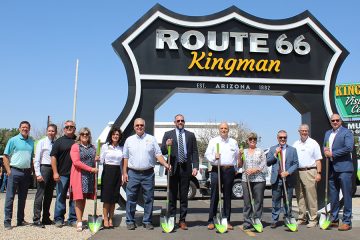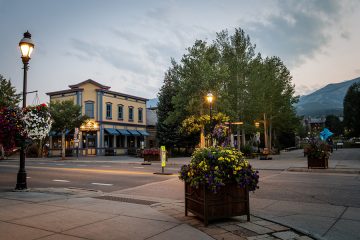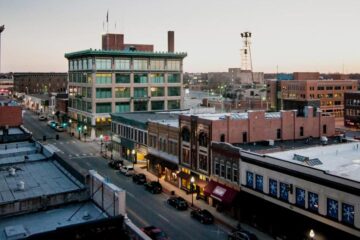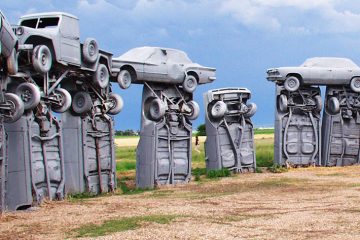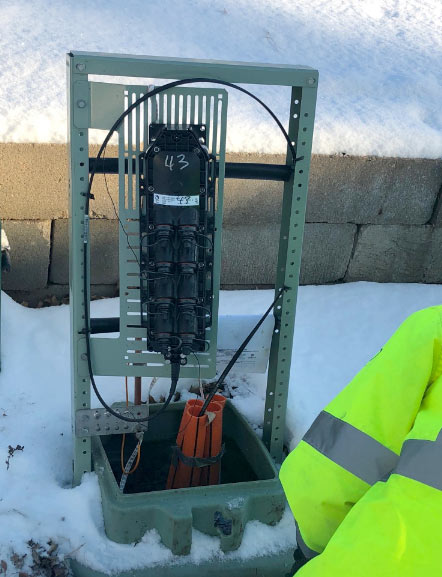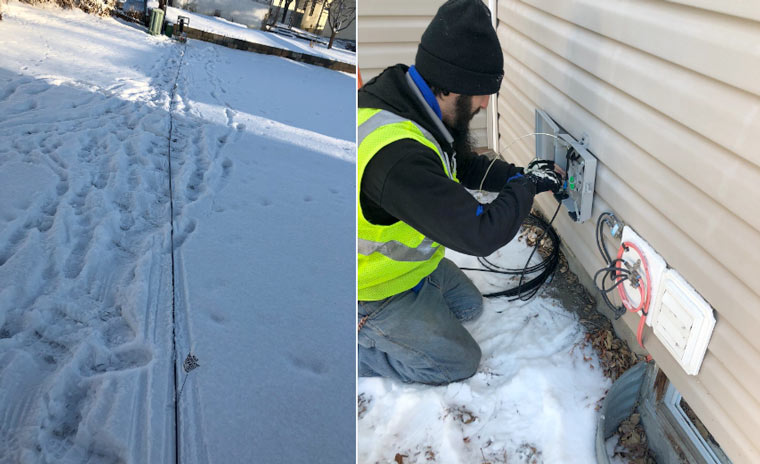A medida que bajan las temperaturas y se acerca el clima invernal, nuestros equipos se preparan para ajustar la forma en que instalamos el servicio de ALLO durante esta temporada. Estas condiciones frías significan que, durante el invierno y principios de la primavera, debemos colocar una "línea temporal" para los clientes que se instalan en esa época del año. En lugar de enterrar la línea de fibra óptica como lo hacemos en primavera y verano, colocamos una línea por encima del suelo, hasta que suban las temperaturas y el terreno se descongele por completo.
Cada mañana, el equipo de instalaciones (Drop Team) se reúne para su sesión informativa del día y a veces para una foto grupal antes de salir a enfrentar todo tipo de clima para llevar la fibra directamente a su hogar o negocio.
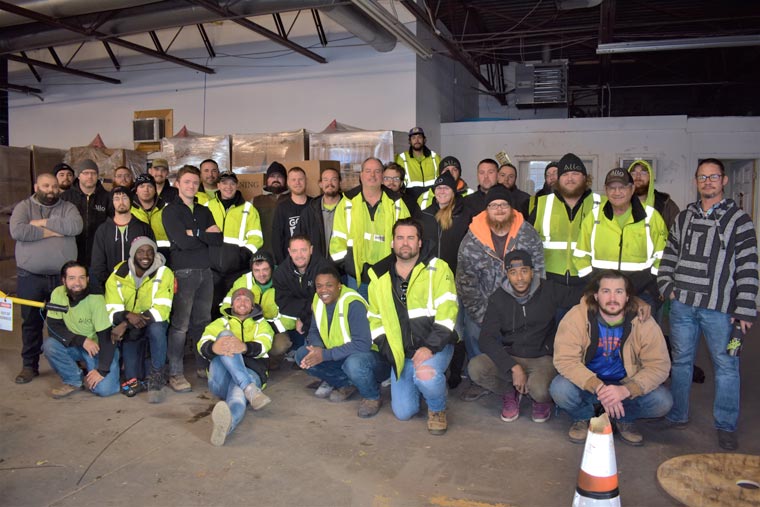
Esta es una vista de cerca de cómo la fibra se conecta al pedestal a través del Terminal de Servicio Multipuerto (MST). Los MST son esencialmente las tomas ópticas donde conectamos la fibra óptica de cada cliente. Un MST puede tener entre dos y doce puertos. Cada puerto de cada MST está asignado a una dirección de cliente específica.
A continuación, se tiende la línea de fibra óptica por el patio y se conecta a la caja lateral de la casa. Unos días después, el cliente recibe el servicio de fibra ópticade ALLO. Si se mudó recientemente y sabe que la residencia ya contaba con el servicio de ALLO , ¡tiene suerte! Probablemente la fibra ya esté enterrada y no necesite una línea temporal en su nueva vivienda.
Sabemos que muchos clientes esperan con entusiasmo el momento de enterrar su línea temporal cuando cambian las estaciones. Como ocurre con muchos aspectos del proceso de construcciónesta parte depende totalmente del clima. Pero no se deje engañar: no basta con el primer día soleado de primavera. Dependiendo del lugar y del tipo de suelo, puede tomar varias semanas de clima cálido y constante (más de 60°) para que el terreno se descongele completamente.
Una vez que el clima coopera, nuestro equipo coordina con las empresas de servicios públicos para marcar sus líneas. También podríamos necesitar solicitar permisos municipales, y el tiempo que esto toma varía según la ciudad. Por ejemplo, en la ciudad de Lincoln, las marcas (locates) deben completarse en un plazo de tres días hábiles. Si se requieren permisos, el entierro podría retrasarse varias semanas.
A menudo nos preguntan qué pueden hacer nuestros fans de la fibra para agilizar el proceso de entierro. A menos que tengas una relación con la Madre Naturaleza o con las autoridades locales, la mejor manera de ayudar a nuestro equipo es mantenerse en contacto. Avísenos si ha cambiado su número de teléfono o correo electrónico para recibir las actualizaciones necesarias. Una vez que sepa que estaremos en su jardín, mantenga las puertas sin llave o indíquenos la mejor manera de acceder al área de entierro. Aunque no es obligatorio, es útil marcar las líneas de riego. Avisarnos de la presencia de servicios públicos privados, como líneas de gas o electricidad, o incluso cercas subterráneas para perros, también es muy útil.
Cuando las temperaturas empiezan a subir, también lo hace el volumen de llamadas a nuestra línea de soporte. "¿Cuándo se enterrará mi línea?" es nuestra pregunta más frecuente. Debido a los numerosos factores incontrolables que intervienen en este proceso, es una de las pocas preguntas que no podemos responder con detalles. Cada año, nuestro objetivo es completar miles de entierros en un plazo de seis a ocho semanas. Aunque los obstáculos y retrasos imprevistos son casi inevitables, el equipo de ALLO sabe cómo ponerse en marcha y, por lo general, logra el objetivo.
Cuando podamos comenzar el proceso, nos pondremos en contacto con usted por teléfono y correo electrónico para avisarle y explicarle los siguientes pasos. No dude en contactar con nuestro equipo local en cualquier momento si tiene alguna pregunta o inquietud. En ALLO, somos personas sociables y nos encantaría hablar con usted. Contáctenos por correo electrónicoinfo@allofiber.com), envíenos un mensaje en redes sociales, o llame a nuestro equipo local al 866-481-2556.






